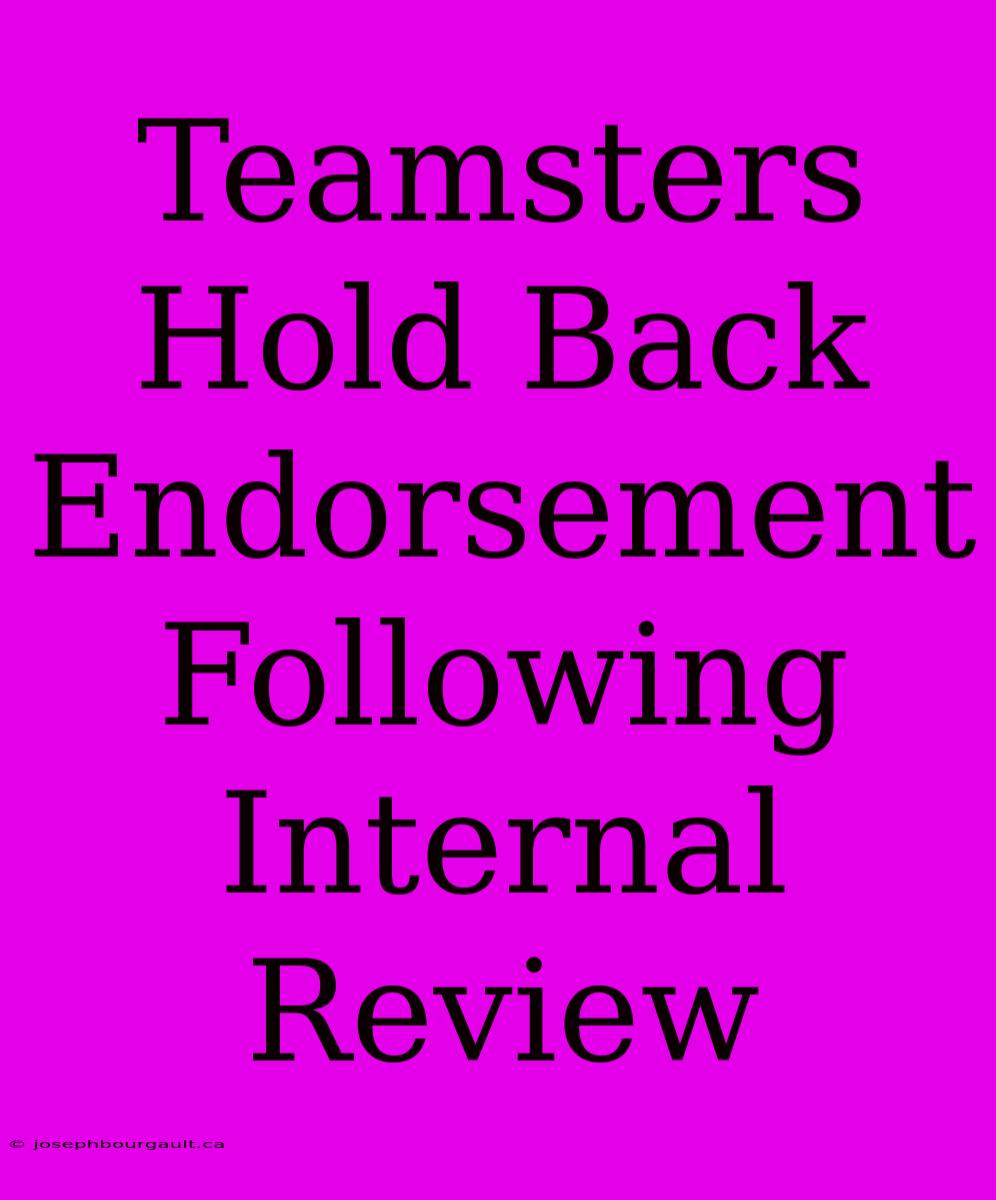Teamsters Hold Back Endorsement Following Internal Review: A Sign of Shifting Labor Politics?
The International Brotherhood of Teamsters, one of the largest and most influential labor unions in the United States, has recently announced that it will be holding back an endorsement in the upcoming election. This decision, made after an internal review process, has sparked speculation about the union's evolving political strategy and its impact on the election.
What Sparked the Review?
The Teamsters have a long history of political activism, and their endorsements often carry significant weight in elections. However, in recent years, the union has faced internal divisions over its political strategy. Some members argue that the union should prioritize endorsements of candidates who are more actively supportive of labor rights and worker protections, while others believe that the union should be more pragmatic and endorse candidates who have a track record of winning elections, regardless of their stance on labor issues.
The recent internal review was likely triggered by this ongoing debate within the union. With the election approaching, the Teamsters felt it was necessary to assess the candidates and their platforms before making any formal endorsements.
What Does This Mean for the Election?
The Teamsters' decision to hold back an endorsement could have a significant impact on the election. The union represents over 1.4 million workers across a variety of industries, including transportation, warehousing, and healthcare. Their endorsements can mobilize large numbers of voters and contribute to a candidate's victory.
By delaying their endorsement, the Teamsters are sending a clear signal to the candidates that they are not taking their support for granted. It also allows the union to carefully evaluate the candidates' positions on issues that are important to their members, such as wages, benefits, and job security.
Implications for Labor Politics
The Teamsters' decision to hold back an endorsement is just one example of the changing political landscape for labor unions. In recent years, unions have faced a number of challenges, including declining membership, increasing political polarization, and a growing anti-union sentiment among some segments of the population.
As a result, unions are increasingly being forced to adapt their political strategies to stay relevant and effective. This often involves focusing on issues that resonate with a broader range of voters, rather than just traditional labor supporters. It also involves building coalitions with other progressive organizations and advocating for policies that benefit working families as a whole.
The Teamsters' decision to hold back an endorsement could be a sign of this broader trend in labor politics. It suggests that unions are no longer willing to simply endorse candidates who are perceived as being friendly to labor. Instead, they are demanding concrete commitments from candidates to address the issues that matter most to their members.
Moving Forward
The Teamsters' decision to hold back an endorsement is a significant development in the upcoming election. It underscores the changing political landscape for labor unions and raises important questions about the role of labor in American politics. As the election unfolds, it will be interesting to see how the Teamsters ultimately decide to use their political influence and what implications this will have for the future of labor activism in the United States.

